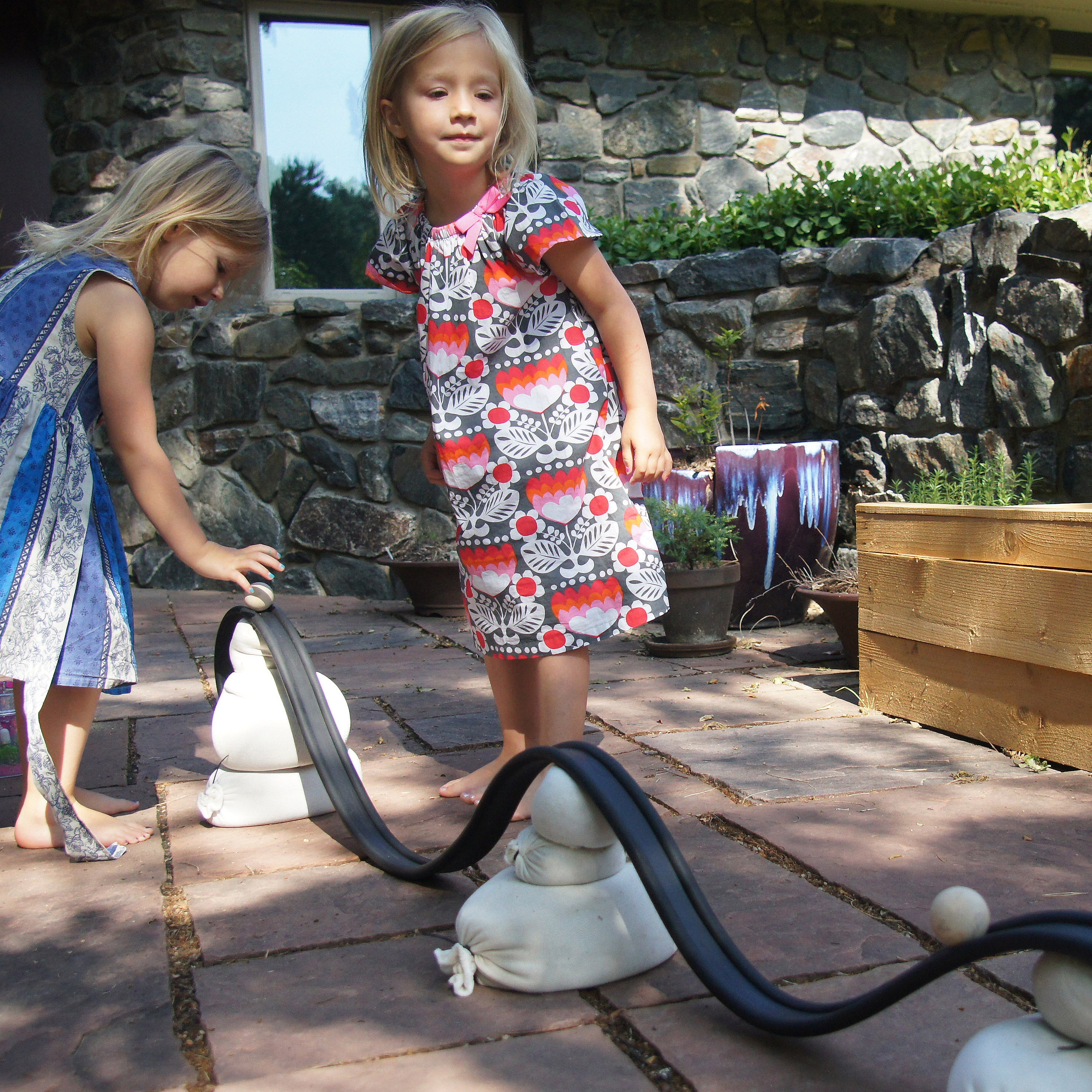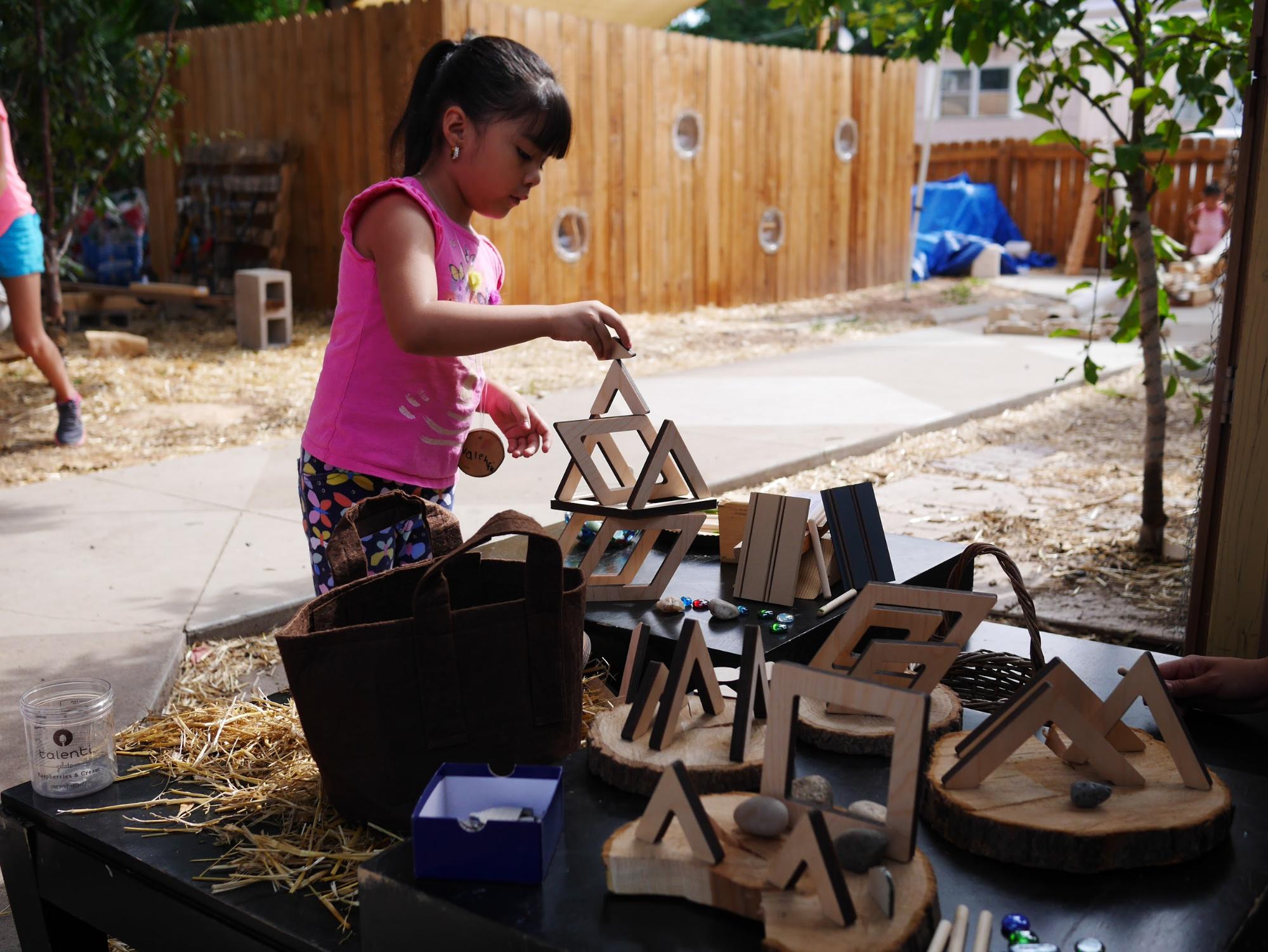Play in Early Childhood Education Develops Essential Skills
More than ever, it is important to make time for play in the daily routine of the child. Providing time for open-ended play in early childhood education gives children the opportunity to use their imaginations, strengthen social skills, and practice problem solving. When a child is invited to explore and discover, they naturally are able to build these skills in a developmentally appropriate way.
As young children play, they think freely and openly about what they want to do with that time. Some will engage in dramatic play scripts rich with connections to both real and imaginary worlds. Reading, painting, making music, and playing physical games will occupy many. Other children have a natural proclivity to try, test, and try again as they construct and tinker. They may identify a goal - say, getting a ball to follow a path from point A to B - and set about problem solving how to achieve their desired result. This naturally leads to hypothesizing, testing, making adjustments, and trying again. Allowing children to choose how, with what , and where they will play sends a message that they are competent, creative, and part of a trusted community of learners.
The greatest benefits from play in early childhood education can be realized when we shift from structuring our day around fixed schedules to flexible routines. When we replace the word “schedule” with “routine” we are more apt to vary timing to accommodate children's ideas, allowing them to lead the learning process in that moment. Shifting our mindsets is the first step to being more flexible with our daily happenings.
Routines change and are adapted to meet needs all the time, but
schedules are, in general, harder to change. By consciously substituting the word “routine” for “schedule,” adults tend to be more open, less rigid, look for children's cues, and better encourage learning through the discovery processes of play.
In conclusion, we encourage you to kick off this year’s Week of the Young child by making time today for play, and by incorporating more of it into your daily routine!
Summary:
What can children learn when allowed time to play in early childhood education?
- Social skills and relationship building
- Problem solving
- Working through failure
- Creativity and role playing
- Engineering by building and testing
Question: How do you incorporate play into your everyday routines? Let us know in the comments!


Share:
5 Kids Light Table Accessories to Buy or DIY
Week of the Young Child: Ask Open Ended Questions in Early Childhood Education